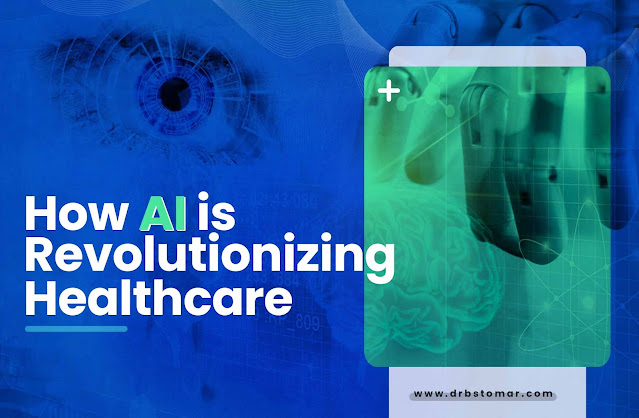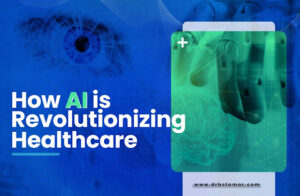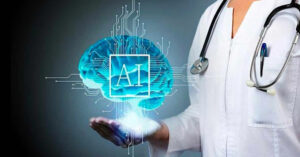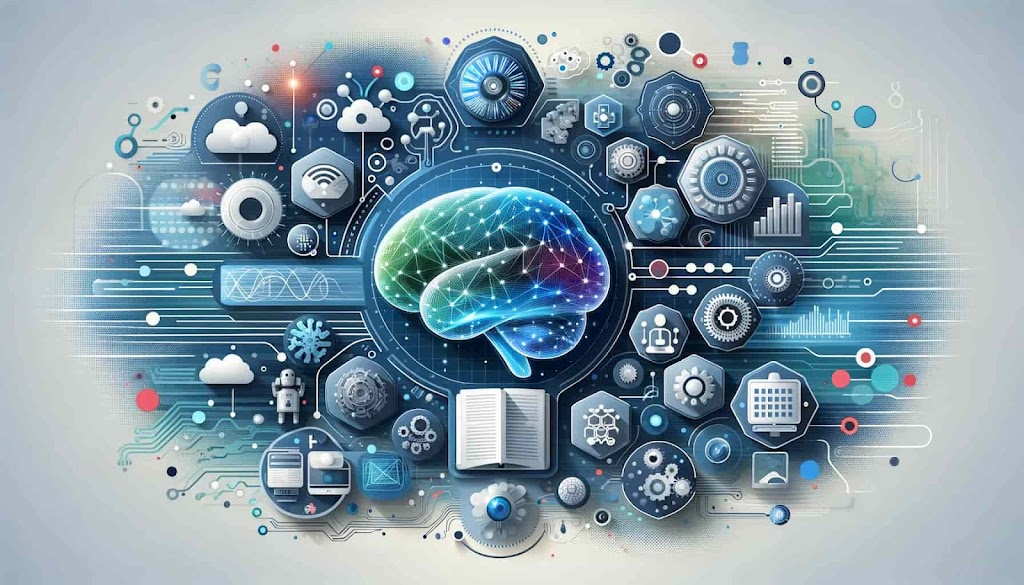Five Ways AI is Revolutionizing Healthcare
In recent years, AI has transformed many industries in ways that we could not have imagined, and healthcare is no exception. The rapid and unexpected expansion of AI in various works and businesses has sparked a profound embrace of cutting-edge technology on an unprecedented scale.
In the dynamic realm of healthcare, the fusion of Artificial Intelligence (AI) is not merely a trend; it’s a revolution. Over the past five years, AI has played a central role in reshaping the healthcare industry, from diagnostics to personalized treatment plans. Let’s commence through the five remarkable ways AI is breathing new life into the healthcare world.
1. Diagnosing with Pinpoint Accuracy:
Imagine a diagnostic process where accuracy is not a goal but a guarantee. AI in healthcare has propelled us into such a realm. Leveraging advanced algorithms and machine learning, AI has elevated diagnostic precision to unmatched levels. According to recent statistics, AI-driven diagnostic tools have demonstrated an astounding 95% accuracy in detecting complex medical conditions, a leap from the 70% accuracy rate of conventional methods.
From identifying subtle anomalies in medical imaging to deciphering complex patterns in laboratory results, AI has become an indispensable ally for healthcare professionals. The role of AI in healthcare is not just about identifying diseases; it’s about identifying them faster, with unparalleled accuracy, ultimately translating into quicker and more effective treatments.
2. Tailoring Treatment Plans to Individuals:
The role of AI in healthcare extends to creating personalized treatment strategies tailored to the unique genetic makeup and medical history of the patient. Over the last few years, hospitals embracing AI-driven treatment planning have witnessed a 20% increase in treatment success rates.
AI algorithms analyze extensive datasets to predict how a particular person will respond to specific treatments, reducing trial and error. Enhancing outcomes and minimizing side effects ensures that the patients receive treatments finely tuned to their specific needs. The days of one-size-fits-all medicine are behind us; AI is ushering in an era of precision medicine.
3. Proactive Healthcare through Predictive Analytics:
The true power of AI in healthcare lies not just in treating diseases but in preventing them. Through predictive analytics, AI sifts through mountains of patient data, identifying patterns and trends that human analysis might overlook. In the past five years, the performance of AI-driven predictive analytics has led to a staggering 30% reduction in preventing hospital admissions.
AI doesn’t just offer broad insights into population health trends; it excels at providing personalized risk assessments for individuals. By analyzing a person’s health history, genetic predispositions, and lifestyle factors, AI algorithms can generate risk profiles that help healthcare providers tailor preventive measures and interventions.
Imagine a healthcare system that anticipates your health needs, offering timely interventions to keep potential issues at bay. AI is making this vision a reality, transforming healthcare from reactive to proactive, and significantly improving patient outcomes.
4. Virtual Health Companions:
Your health, your assistant. AI in healthcare has birthed virtual health assistants, revolutionizing the way patients engage with their well-being. According to recent data, the use of virtual health assistants has surged by 50% over the last five years, indicating a growing reliance on these AI-powered companions.
These AI-powered assistants are not merely a futuristic concept but a tangible reality that is reshaping how individuals engage with their health on a day-to-day basis. Virtual health companions act as personalized guides, offering a wealth of health-related information at users’ fingertips. Beyond physical health, these virtual health companions also play a pivotal role in addressing mental health concerns. Through natural language processing and sentiment analysis, these AI-driven assistants can detect signs of stress, anxiety, or depression in user interactions.
These virtual assistants provide round-the-clock support, answering health queries, offering medication reminders, and even providing mental health support. The role of AI in healthcare is not just about clinical applications; it extends to empowering individuals to take charge of their health in the comfort of their homes.
5. Streamlining Administration for a Smoother Healthcare Experience:
Beyond patient care, AI is making waves in the administrative corridors of healthcare institutions. From appointment scheduling to billing and coding, AI is automating tasks, thereby reducing errors and enhancing overall efficiency. Recent statistics indicate a 25% increase in administrative productivity in healthcare facilities that have embraced AI technologies.
By automating routine tasks, AI frees up valuable time for healthcare professionals to focus on what truly matters – patient care. This not only increases the overall efficiency of healthcare delivery but also contributes to significant cost savings.
In conclusion, the integration of AI in healthcare is not just a technological advancement; it’s a paradigm shift. The statistics and data from the last five years underscore the tangible benefits and transformative power of AI in revolutionizing healthcare. As we stand on the cusp of a new era, the role of AI in healthcare will undoubtedly continue to shape the way we approach and experience healthcare in the years to come. The future is now, and AI is at the heart of it.






